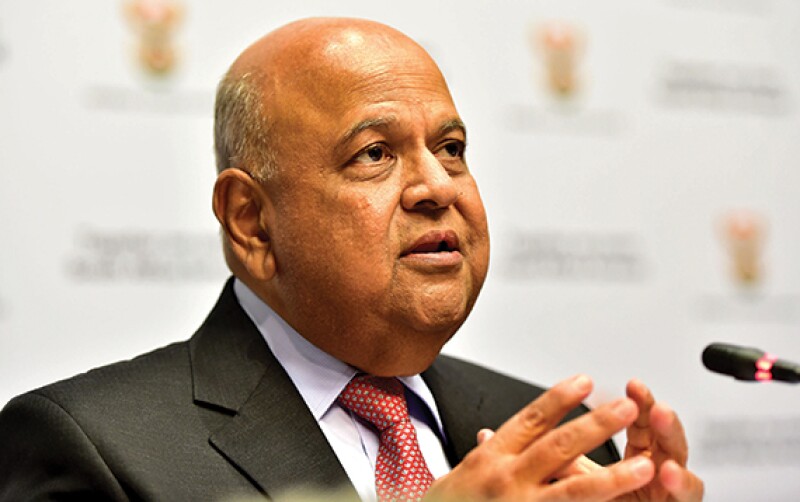
|
Pravin Gordhan is a new entry this year |
After 18 months as South Africa's minister of cooperative governance and traditional affairs, Pravin Gordhan stepped back into his old role as finance minister in December 2015, boosting business confidence in South Africa's economy when it was needed and securing his position in the Global Tax 50.
Over the past year, he has continued to press for measures that will raise $3.1 billion in revenues in the next two years.
However, Gordhan has been in the media for far more controversial matters this year – the finance minister was charged with tax fraud in October, but South African prosecutors dropped the charges against Gordhan only two days before he was due to appear in court. The finance minister denied any wrongdoing from the beginning, which was confirmed when National Prosecuting Authority chief Shaun Abrahams said he was satisfied that Gordhan did not have the requisite intention to act unlawfully, and directed the summons to be withdrawn.
Aside from the controversy, Gordhan has been a pillar of reassurance for investors and the business community. He has maintained a stable business environment throughout the year by not introducing major changes to the business tax system in his annual budget in February and subsequent mid-term budget policy statement in October. The finance minister said the economic environment had been unusually difficult this year, but stressed that his mid-term budget policy statement outlined a "measured, balanced fiscal consolidation" that prioritised capital investment and stabilised national debt as a share of GDP.
But this is not to say that it has been a quiet year for Gordhan.
The special voluntary disclosure programme, which was announced in the 2016 budget, was enacted and opened on October 1 2016, allowing taxpayers to regularise their undisclosed or unauthorised foreign assets and associated income before the South African Revenue Service begins exchanging tax data with foreign tax authorities from September 2017.
Gordhan has also submitted several tax bills to parliament to enact previously announced measures from the 2015 and 2016 budgets, such as the Taxation Laws Amendment Bill and the Finance Bill, to raise revenue.
Outside of South Africa, Gordhan was also part of a panel at the OECD forum in Paris in July, where he called for tax policies to trigger economic growth. "We have growth modelling issues at the moment that we don't have answers to. Somebody needs to take the initiative, perhaps the OECD, to bring these range of role players around the table and say 'can we as much as we've had an agreement on the tax issues, can we get agreement on a different economic model'," Gordhan said. He added that he would like to see new transparency provisions for multinational enterprises. In his 2016 budget statement in February, he also noted that with effect from 2017, international agreements on information sharing will "enable tax authorities to act more effectively against illicit flows and abusive practices by multinational corporations and wealthy individuals".
But however righteous Gordhan's visions for a more transparent corporate world are, the fraud allegations might continue to haunt him. Although the charges were dropped, such accusations are never good news for politicians – particularly finance ministers pushing transparency agendas – and could potentially have reputational consequences for Gordhan and South Africa's government.
In addition, 2017 may prove to be a difficult year for Gordhan as he looks to move forward with plans for a controversial carbon tax and a tax on sugar-sweetened beverages. Gordhan said that the planned carbon tax "will be dealt with in 2017" and consultations on the levy are "continuing". The tax has been stalled because of "demands on the legislative programme", Gordhan said in his mid-term budget speech.
The Global Tax 50 2016 |
|
|---|---|
The top 10 • Ranked in order of influence |
|
2. The International Consortium of Investigative Journalists |
|
3. Brexit |
4. Arun Jaitley |
5. Jacob Lew |
|
10. Donald Trump |
|
The remaining 40 • In alphabetic order |
|









